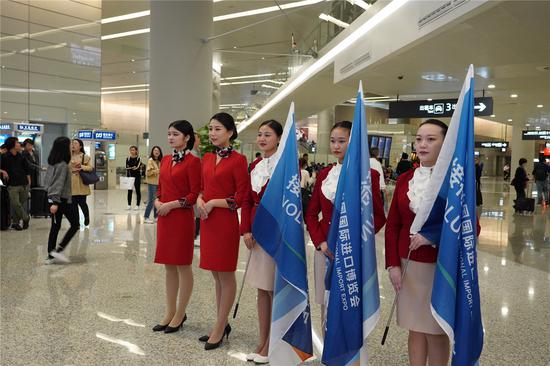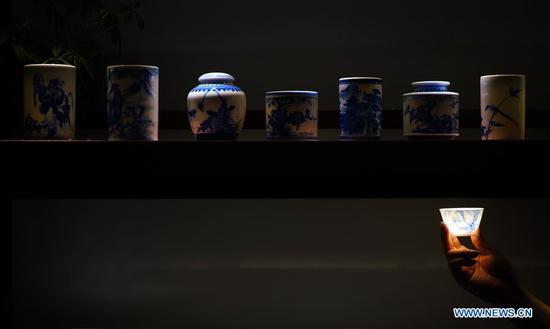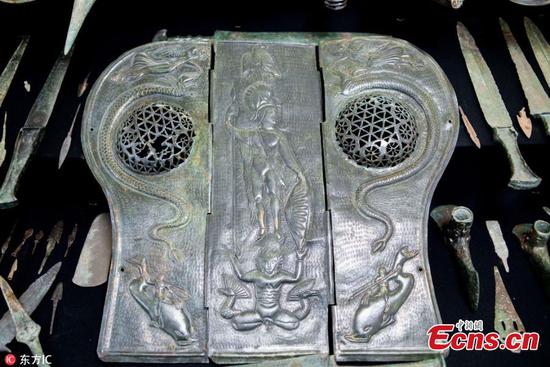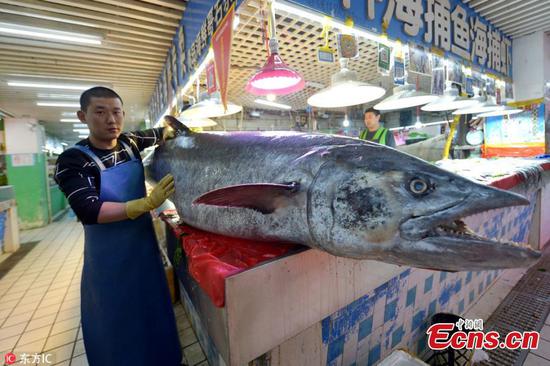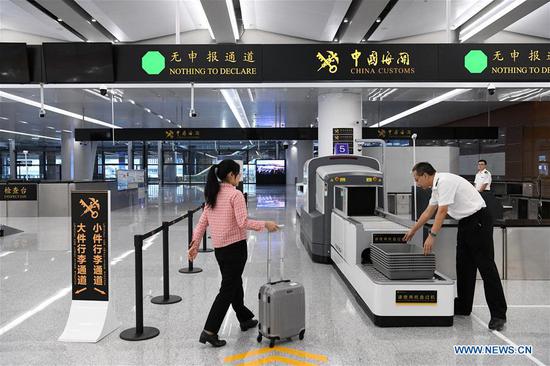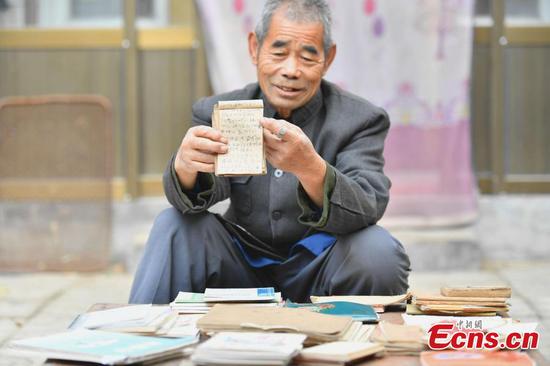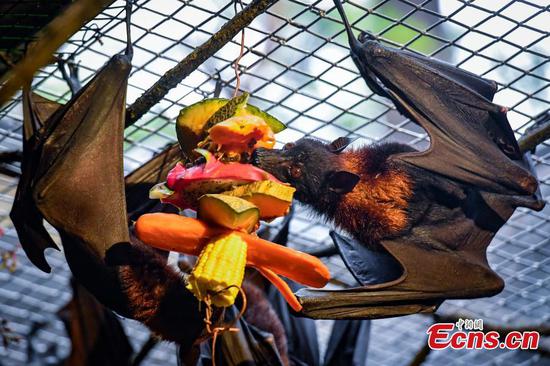
The TV serial Way of Choices has been adapted from a fantasy novel and shown at an exhibition in Russia. (Photo provided to China Daily)
He cited the concept of qi-the vital life force that Chinese martial artists need to harness, and which figures prominently in wuxia stories. Ren said most readers outside of China can relate to qi, as they view it as the Chinese version of "the force" in the Star Wars movies.
"This really helps international readers to engage with the storytelling of Chinese online fiction, despite different cultural contexts and usually poor translation," Ren said.
Jing Ruyi, internet literature expert at iResearch Consulting Group, said international readers enjoy fantastic plots and the protagonists' struggles in Chinese online novels.
"Martial arts, fantasy-themed and video game-themed literary works have also found favor among internet literature readers in the overseas market," she said.
Ren said the "cross-media convergence" of adapting online literature into TV dramas, comics, animations and other media formats has led to Chinese online literature reaching a global audience.
"In Vietnam, for example, Chinese TV dramas adapted from online literature are very popular, and this helps to attract more readers," he said.
In China, online literature emerged in the 1990s, pioneered by amateur authors who published their stories on electronic bulletin boards and personal websites. Reader discussions in electronic forums boosted these works' popularity.
By the early 2000s, that popularity had led to a nascent digital publishing industry.
One of the most successful publishers is Qidian, which launched China's first online reading payment program, with readers having to pay to unlock the latest chapter of a serialized novel.
In 2015, digital publishers Qidian, QQ Reading and Hongxiu.com merged under Tencent-backed digital publisher China Literature's wing. This transformed China Literature into the country's biggest digital publisher. According to growth partnership company Frost& Sullivan in the United States, China Literature accounts for more than 70 percent of the Chinese online literature market.
Other Chinese tech giants are tapping into this booming market.
Alibaba Group created Alibaba Literature and launched an online reading app. China Mobile's digital content subsidiary Migu includes online novels in its diverse portfolio. Migu has also partnered with global e-commerce site Amazon to launch a co-branded electronic reading device.
Publishers have recognized online literature's global potential and are introducing translated works to appeal to an international audience.
One of these companies is WuxiaWorld, a website that offers translations of online Chinese novels in English. The startup was founded in 2015 by Chinese-American Lai Jingping, a former U.S. diplomat. He said the site receives about 2 million visitors each month from 115 countries.
iReader Technology, a software provider in Beijing, is not only pushing its e-reading devices overseas, but also has some of its online Chinese novels translated into English, Russian and Korean, according to CSCI.
But CSCI's Liu said such overseas expansion may be limited by the quality of translated works and the number of translators available.
Neil Wang, global partner and China managing director at Frost & Sullivan, said China's digital publishers "have been striving to put efforts in improving translation accuracy and increasing their content's diversity" to get a bigger share of the global market.
Wang cited Webnovel, an English-language website and mobile platform launched by China Literature in May last year. He said China Literature has more than 200 translators and trains them regularly to ensure that Webnovel only publishes high-quality translated work.
Wu Wenhui, China Literature's co-CEO and executive director, said Webnovel has attracted more than 13 million visitors since it launched. It has more than 3,500 original titles, including 160 works translated into English.
Wu said that his company can simultaneously release original Chinese works and their English-language versions through Webnovel.
"Webnovel enables overseas readers to access the updates of online novels as quickly as possible," he said
Wu added that China Literature is going beyond the English-language market by offering original Chinese novels translated in other languages, including Thai, Korean, Japanese, French and Turkish.
Authorization has been given for more than 300 original novels owned by China Literature to be published both digitally and in paperback in Asia, Europe and the U.S., he said. Several of the company's titles have been adapted into other formats, not only in China but overseas.
Legend of Fuyao is just one of China Literature's most successful titles. Wu said another of the company's fantasy novels-Way of Choices (Ze Tian Ji)-was adapted into a TV series and screened at an exhibition in Russia. The romance novel Full Marks Hidden Marriage is being developed into a TV series in Vietnam.
China Literature is also going beyond offering translated and adapted works to get a bigger share of the global market. Despite the fact that the company already has more than 7 million Chinese writers, it is using Webnovel to sign up foreign authors.
Wu said Webnovel has a function on its website that international readers can use to submit original stories, and more than 2,000 foreign writers have registered and over 3,500 titles have been created.
While these titles have spanned various genres, Wu said most of the user-generated works were deeply influenced by Chinese online literature with typical cultural themes.
He said China Literature is confident of expanding further overseas as Chinese online literature will continue to gain more headway abroad.
"As the business model for Chinese online literature becomes more mature and professional, its scale and number of users in the global market will continue to expand," he said.









